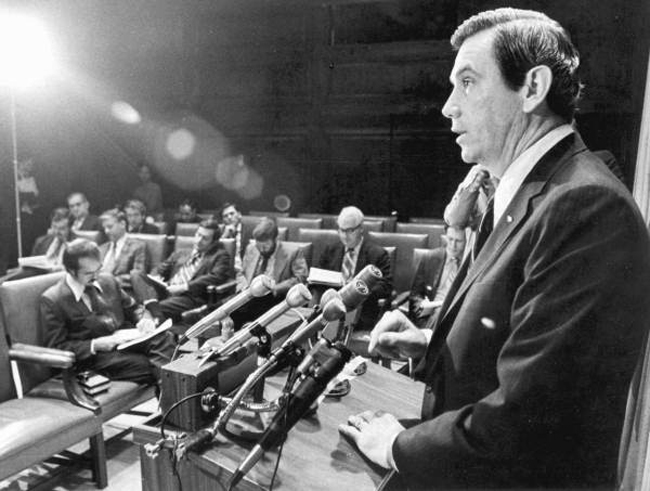
Former Gov. Reubin Askew, a major figure in modern Florida political history, died early Thursday at Tallahassee Memorial Healthcare. Askew was 85.
The former governor was admitted to the hospital Saturday with aspiration pneumonia, and his condition worsened when he suffered a stroke, family spokesman Ron Sachs said.
Askew, a Democrat, served as governor from 1971 to 1979, after a dozen years representing the Pensacola area in the Legislature. Askew defeated incumbent Republican Claude Kirk in 1970 and was re-elected in 1974, becoming the first governor in Florida history to be elected to successive terms.
“Gov. Askew was an incredible leader of this State,” Al Hadeed, the Flagler County Commission’s attorney, said from Tallahassee, where he was working on b behalf of the county this week. Hadeed had worked with Askew over the years. “He really cared about creating public policy and serving the public interest. I count one of proudest moments of my career representing him and the Florida League of Women Voters in the Florida Supreme Court in striking a misleading ballot proposal that would have weakened the Sunshine Amendment. I worked with him on a range of other issues, the preservation of our state’s heritage, protecting our environment, voting reform, and in all these he acted with principle.”
When he first ran for governor, Askew was a relative unknown. But once in office, Askew led efforts to institute a corporate income tax, while reducing consumer taxes. He also spearheaded approval of what became known as the “Sunshine Amendment,” which opened government records and required public officials to disclose information about their financial affairs.
In a 1998 interview with Florida State University’s “Research in Review,” Askew said he wanted to restore “some sense of responsibility and competence” in the governor’s office.
“It sounds awfully corny for me to say this but my goal wasn’t (simply) to get elected governor,” Askew said during the interview. “My goal was to get elected in such a way as I could govern. There’s a big difference. … So many people who run for office negotiate away all their options in the pursuit of the office and they literally tie their hands on dealing with the problems, by commitments.”
Askew, an attorney, said the Sunshine Amendment stopped “a lot of circuitous business transactions in state and local government.”
“Having to report your income is sort of an invasion of privacy and yet, I felt, while it was extraordinary, I felt that it was needed to give some sense of reassurance to the people (about their elected officials),” he said during the 1998 interview. “Who are they working for? Are they working for themselves or for the people?”
After leaving office, Askew served as the U.S. trade representative from 1979 to 1981. He ran unsuccessfully for president in 1984. He later taught at the Askew School of Public Administration and Policy at Florida State University, where he received a bachelor’s degree in 1951.
The former governor is survived by his wife of 57 years, Donna Lou; a son, Kevin Askew; a daughter, Angela White; and several grandchildren. Details of memorial services will be forthcoming.
–Jim Turner, News Service of Florida, and FlaglerLive





























confidential says
Farewell to a good leader that now highlights our Florida history for eternity.
My deepest condolences to his family.
Seminole Pride says
Farewell to you Gov. Askew you were a great leader in our state, and most important a great man. Condolences to his family.